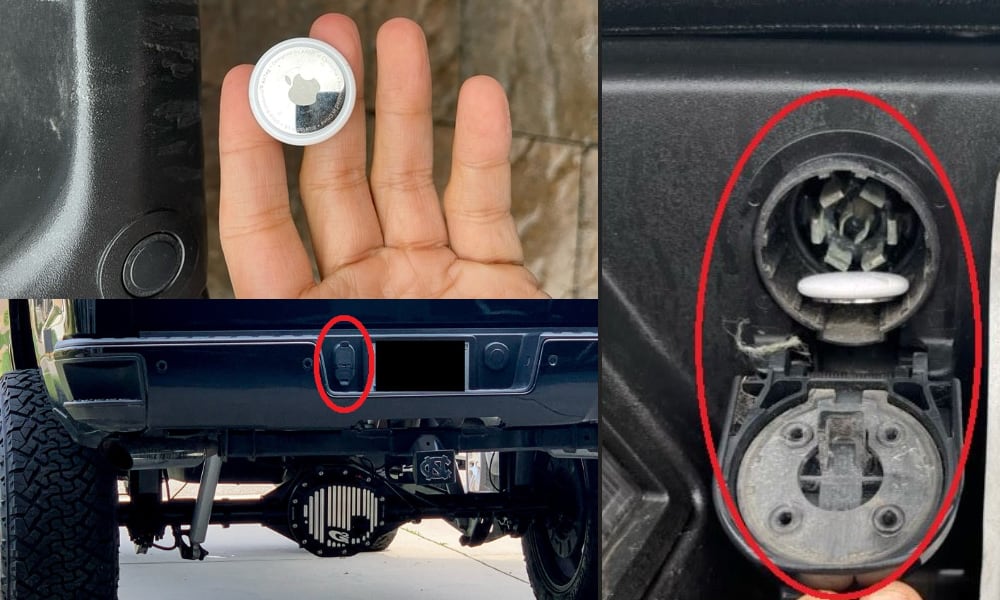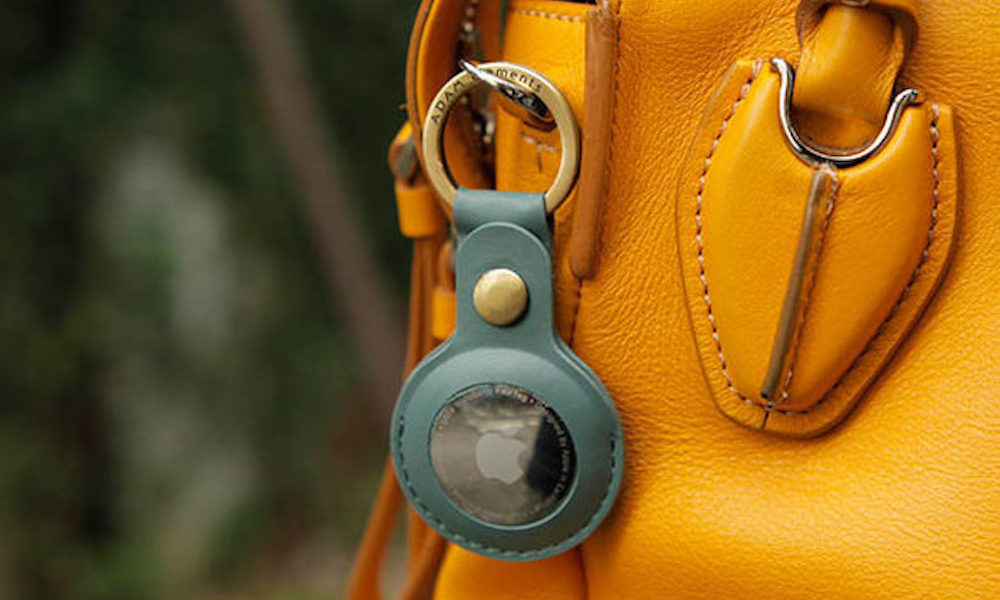Recent Arrest Proves AirTag’s Anti-Stalking Features Work | Are AirTags the Demons They’re Made Out to Be?
 Credit: Boyphare / Shutterstock
Credit: Boyphare / Shutterstock
Toggle Dark Mode
It’s somewhat understandable how people may be somewhat alarmed by Apple’s AirTags. After all, they’ve been all over the news lately, with reports of people finding AirTags on their person or in their possessions of vehicles.
What’s perhaps ironic about this, however, is that much of this fear and uncertainty stems from the fact that AirTags are actually working as designed, and a new report out of Pennsylvania is giving us some insight into exactly how foolish it is for a would-be stalker to choose Apple’s tracking tags for their nefarious deeds.
A report from WPXI News in Apollo, Pennsylvania, shares how the discovery of an unwelcome AirTag led to the arrest of its owner.
According to the story, an unidentified woman received a notification of an unknown AirTag that had been tracking her location. She contacted the police, who discovered the AirTag hidden in her trailer hitch — a spot that appears to have become a common hiding place for AirTags.
The police presumably contacted Apple with the serial number of the AirTag, which led them to Ronald Roessler, a 56-year-old man who turned out to have been under a type of restraining order, known in Pennsylvania as a Protection From Abuse (PFA) order, from the woman in question.
Roessler originally tried to deny any involvement, saying it was simply a mistake. He voluntarily showed his iPhone to the police and deleted the AirTag in front of the trooper. However, the existence of the PFA made Roessler’s denials less than convincing. He was arrested on charges of stalking and violation of a protection-from-abuse order.
In a statement to the NBC News station, Apple reiterated the AirTag’s safety features, which police acknowledged led to Roessler’s arrest.
Apple told NBC News they take safety very seriously and are committed to AirTag privacy and security. AirTag is designed with a set of proactive features to discourage unwanted tracking that both inform users if an unknown AirTag might be with them and deter bad actors from using them for nefarious purposes.WPXI News
While this isn’t the first we’ve heard of someone finding a suspicious AirTag, it’s one of the few that we’ve heard of leading to an actual arrest and charges laid by police. To be fair, many folks who find an unknown AirTag may simply choose to discard it without contacting the police, but we’d recommend following the example of the woman in this case.
Although the news report doesn’t go into detail, it implies that the woman called the police as soon as she received the tracking notification on her iPhone, without even taking the time to look for the AirTag.
What to Do If You Find an Unknown AirTag Following You
This is good advice for anybody who may be in an unsafe situation, since the time you take to look for an AirTag is also time that a stalker can use to move in. The very fact that the woman in this case had a restraining order against the man who turned out to be her stalker suggests that she had every reason to be concerned for her safety.
Even if you’re not in that position, however, it’s still a good idea to contact law enforcement as soon as possible. For instance, you may have no reason to believe anybody is stalking you, but an AirTag found on your vehicle could be more about your car than it is about you.
Regardless of the situation, if you find an unknown AirTag on your person or in one of your possessions, you should always assume that its owner knows your current location. If you’re concerned for your safety, you should remove the battery, contact law enforcement, and go to a safe location. If you’re unsure of where the AirTag is, go to a safe location and contact law enforcement anyway.
If you have the unknown AirTag in your hand, you should also definitely hang onto it — after removing the battery, of course — since the police will need it to track down the person who planted it on you. An AirTag is rendered completely inert once the battery is removed, so you won’t need to worry about it continuing to track you.
Are AirTags Really the Problem?
To be clear, Apple’s AirTags have not created a new problem, but they have done a great deal to raise public awareness of the issue of unwanted stalking.
As we saw in a New York Times report last week, AirTags are far from the most insidious tracking devices out there. In fact, they’re probably the least of all the evils. This is because Apple is the only company that’s actually taken the time to even consider how they could be misused and abused.
Other tracking tags from companies such as Tile provide no such safety features. To be fair, you’re far less likely to be stalked successfully with a Tile tag, since it’s entirely dependent on how many devices around you are using the Tile app. With only 40 million Tile tags sold in total, and many folks buying more than one tag, it’s not an especially large tracking network.
By comparison, an AirTag can be tracked by any iPhone or iPad on the planet, as long as it’s running iOS 14.5 or later. That works out to over a billion devices. This is what makes the AirTag so effective for finding your lost stuff, but it’s also what makes it dangerous as a stalking device.
Fortunately, Apple has thought of this and implemented several safety features, including the aforementioned alerts that allowed this Pennsylvania woman to discover that she was being stalked. While there are valid arguments that Apple hasn’t done enough to prevent this misuse of AirTags, it’s doing more than anybody else — and it’s actively working to improve the situation as much as possible.
Unfortunately, this has also created a situation where public officials and the media are focusing far too much on Apple and the AirTag, when they should be looking at the much bigger picture.
For example, New York Attorney General Letitia James issued a consumer alert today warning New Yorkers to beware of “malicious Apple AirTag users.”
Across the country, Apple AirTags are being misused to track people and their belongings to cause harm. Tracking people without their awareness or consent is a serious felony and will not be tolerated by my office. I urge all New Yorkers to pay close attention to their belongings and follow the tips provided by my office to stay safe. New Yorkers’ safety is my top priority and my office will continue to do everything in its power to protect New Yorkers.New York State Attorney General Letitia James
While James’ office provides some valuable advice, these tips are sadly far too focused on AirTags, rather than addressing the idea that people who are concerned for their safety should be aware of their surroundings and their personal property and the possibility that just about any piece of technology could be used to track their location without their knowledge.









